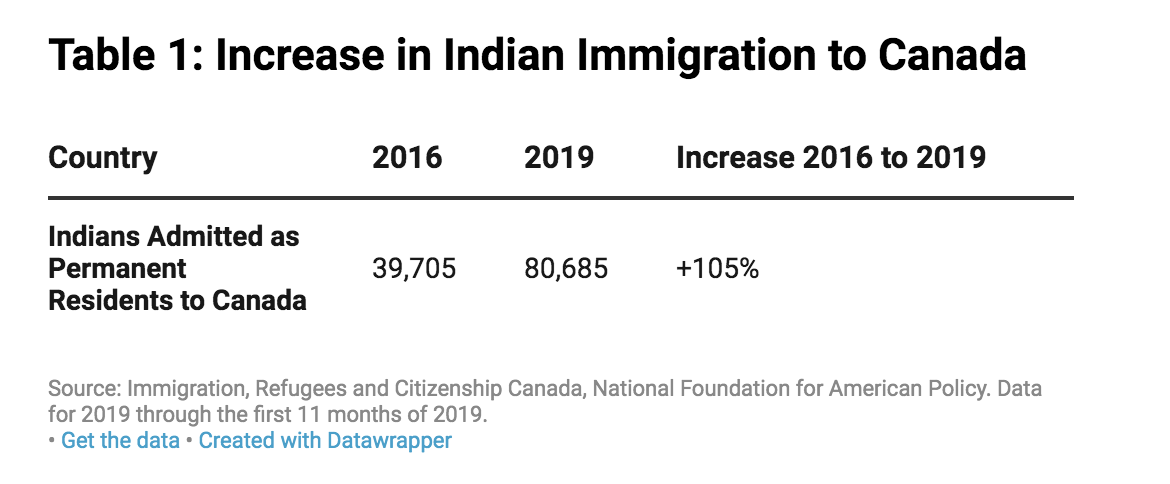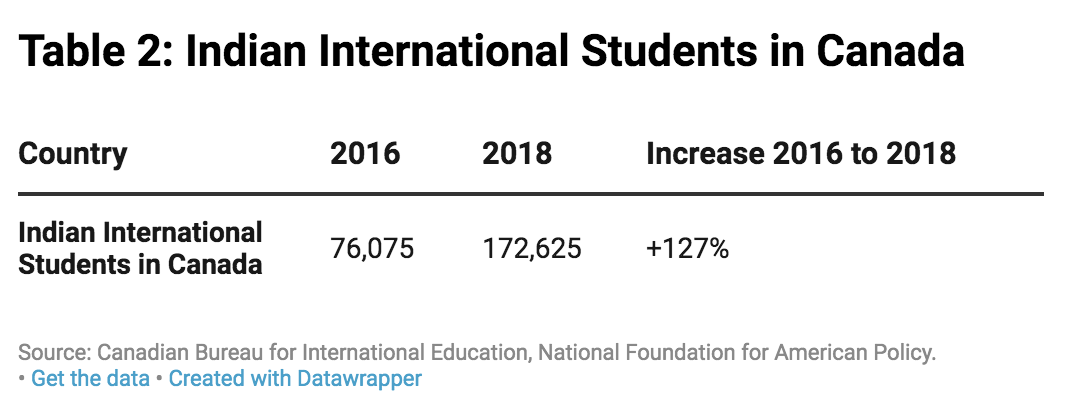Tightening United States immigration regulations are making Canada the first-choice destination for highly skilled and educated Indian technology workers. 85,000 Indian immigrants moved to Canada in 2019. The number of Indians obtaining permanent residence in Canada has more than doubled since 2016, according to a National Foundation for American Policy (NFAP) analysis of Immigration, Refugees and Citizenship Canada data. Indian technology workers are choosing to work and raise their families in Canada instead of America as it becomes more difficult for foreign workers to get a U.S. work permit.

4 Key Factors Why Indian Tech Workers Immigrate to Canada
Are You Qualifed to Move to Canada?
Calculate Your Express Entry Score
1. Denial Rate for H-1B Petitions
Forbes reports that in the United States, the denial rate for H-1B petitions for existing employees who want to continue to live and work in the U.S. continuing employment is 12% under the Trump administration, four times higher than the denial rate of 3% in FY 2015. For new employees on H-1B petitions, the denial rate was 24% through the first three quarters of FY 2019, compared to 6% in FY 2015.
2. Difficulty Getting Green Cards
The U.S.'s low availability of employment-based immigrant visas (green cards) and the per-country limit, means that an Indian-born professional might need to wait decades to obtain permanent residence in the United States.
3. Nearshoring or Opening Canadian Affiliates
Canadian businesses and the Canadian government are actively recruiting tech workers and creating solutions to the growing market for highly skilled technology workers.
Many U.S. and Indian technology companies have opened affiliate offices in Canada, reports Forbes. The Canadian government has streamlined its work permit process for tech workers and provides a clear path to permanent residence. Nearshoring, also known as nearsourcing is when a business - particularly a tech business - outsources jobs to a nearby company that shares a border with the country then Canada is an attractive nearshoring destination for U.S. tech companies to export jobs when they can't hire tech workers directly.
Many American and other foreign businesses are opening a Canadian office or affiliate location because of the difficulty in getting U.S. work permits and green cards for skilled foreign workers.
4. Indian International Students in Canada
Changes restricting United States and UK student visas have resulted in Canadian schools welcoming more students from India mean that Canada has been able to attract 20-30% more MBA students from India, and Canadian programs make it easy for an international student to transition to a job in Canada after graduation, which creates a path to permanent residence. Due to recent rule changes introduced by the Canadian governments, 40% of all economic-class immigrants accepted by the federal government are now international students who have graduated and who want to stay in Canada.

Canada Study Permits
Student Visas and Study Permits for Canada
Ackah Business Immigration Law offers immigration services for individuals and employment law and human resources advisory services for companies that do cross-border business. We recommend that you review your HR policies and practices and consult a Canadian immigration expert if you are considering nearshoring or opening a business in Canada. Contact us today at (403) 452-9515 Ext. 100 or 1-800-932-1190 or email us directly.
Learn More








